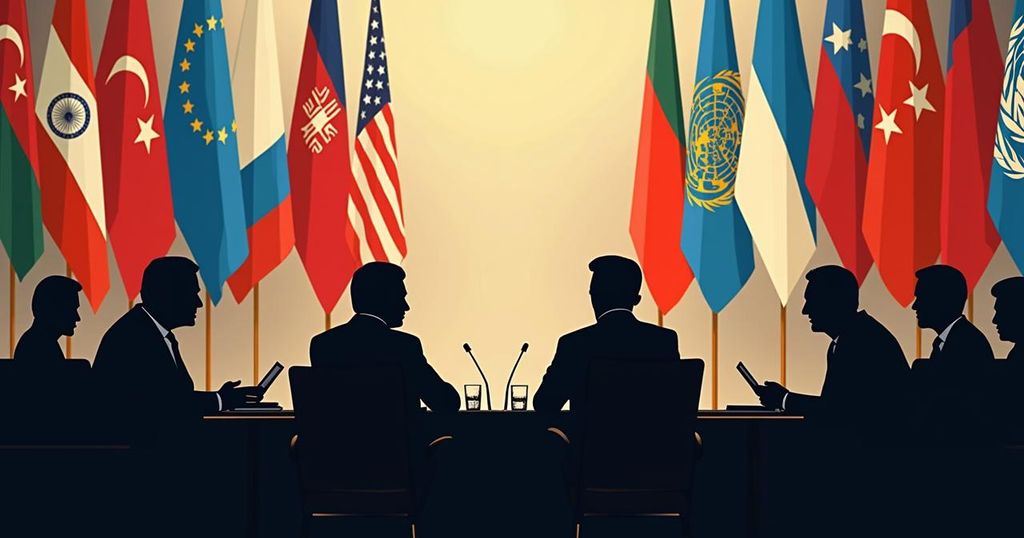During the UN General Assembly, four small nations—Marshall Islands, Palau, Eswatini, and Paraguay—attempted to advocate for Taiwan’s inclusion in the UN, challenging the established One China Principle. Their actions may indicate external influences, particularly from the US, considering their historical adherence to the principle when joining the UN. This situation illustrates a complex interplay of diplomacy and power dynamics amidst rising tensions with China.
In a significant moment during the United Nations General Assembly, four small nations—Eswatini, Palau, Paraguay, and the Marshall Islands—sought the inclusion of Taiwan in the UN system, posing a challenge to the One China Principle. This move comes at a turbulent time for global geopolitics, overshadowed by major issues like the Israel-Gaza conflict and the situation in Ukraine. Historically, the One China Principle has been upheld since the UN Resolution 2758 of 1971, which asserts that there is one China and that Taiwan is part of it, a stance reinforced by earlier agreements such as the Cairo Declaration and the Potsdam Proclamation. The requests made by these small states are perceived as contradictory to their commitments upon joining the UN system, where adherence to the One China Principle is fundamental. The perceived motivations behind their actions raise concerns regarding potential external influences, particularly the United States, which has a history of supporting Taiwan’s movements toward independence, thereby undermining China’s territorial claims. The actions of these small nations may reflect a broader strategy to embolden smaller states to publicly oppose the One China Principle, suggesting a manipulation at play by larger powers wary of China’s growing influence. The current situation draws parallels with the 1959 film “The Mouse that Roared,” where an insignificant entity instigates a conflict far beyond its means, highlighting the absurdity and potential dangers of such a diplomatic challenge.
The One China Principle posits that Taiwan is an integral part of China and has been established through UN Resolution 2758 adopted in 1971. This principle is vital for maintaining the integrity of international relations as all countries are required to recognize and adhere to it in order to participate within the UN. The involvement of small states in questioning this principle indicates possible geopolitical manipulations, especially given the historic and ongoing relationship between these nations and the US. This aligns with a broader narrative of diplomatic tensions and strategies at play in the context of US-China relations.
The recent actions taken by the Marshall Islands, Eswatini, Palau, and Paraguay to challenge the One China Principle underscore the complexities of international diplomacy today. While these small nations may be attempting to assert their voices on a global stage, their actions reflect a deeper geopolitical struggle influenced by larger powers. Ultimately, the One China Principle remains resilient, and any deviations attempt to destabilize a carefully maintained order that has significant implications for international peace and security.
Original Source: europeansting.com






